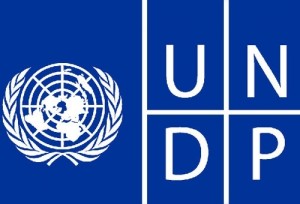 TEHRAN, Oct. 23 (MNA) Ė Iran has been ranked among the ďhigh human development countriesĒ in the Human Development Index in 2013, which measures progress on dimensions of health, education, and income, UN Development Program Administrator Helen Clark†announced on Tuesday.
TEHRAN, Oct. 23 (MNA) Ė Iran has been ranked among the ďhigh human development countriesĒ in the Human Development Index in 2013, which measures progress on dimensions of health, education, and income, UN Development Program Administrator Helen Clark†announced on Tuesday.ďSince the index began, Iran has been among those making the fastest progress, with average annual HDI growth rates of around 1.3 percent, compared to the global average of around 0.69 percent,Ē Clark said at a ceremony held to commemorate United Nations Day in Tehran, which UN Resident Coordinator Gary Lewis and a number of senior Iranian officials attended.
Addressing the ceremony, Iranian Deputy Foreign Minister Abbas Araqchi said Tehran is keen to expand its relations with other countries, international organizations, and all members of the international community.
ďIn this movement, which can guarantee peace, security, justice, development, and progress for everyone and promise to resolve all problems, we warmly press the hands of everyone who accompanies us,Ē Araqchi stated. He added that development at the international, regional, and national levels should be sustainable and beneficial for the people.
Elsewhere in his remarks, Araqchi lamented the imposition of unjust sanctions on developing countries, saying such measures run contrary to the UN Charter and pose a serious threat to international peace and security.
At the ceremony, the official website of the UN office in Iran was opened, which is in both the English and Persian languages.
Following is the text of the speech of Ms. Clark:
Excellencies, Colleagues of the United Nations Organizations, Ladies and Gentlemen, I am delighted to be with you today to celebrate UN Day 2013 in the Islamic Republic of Iran.
I thank the Government for extending to me the warm hospitality for which the people of Iran are known.
UN Day was first declared in 1945 by the General Assembly with the intention of ďmaking known to the peoples of the world the aims and achievements of the United Nations and to gain their support for its work.Ē The presence of so many of our national development partners here today tells me that the work of our United Nations Country Team is well recognized in Iran.
Iran is a founding member of the United Nations and has long hosted a UN Information Center. In 1966 UNDP opened its offices here. Since then, our presence in Iran has grown and over the years has evolved into a strong partnership with the government and the people of Iran.
We have worked to promote and support development to this day through programs which focus on improving health, environmental sustainability, disaster preparedness, and development planning capacities in ways which promote inclusive growth and resilience.
In the years that UNDP has been in Iran, we have witnessed the enormous progress the country has made on human development.† Our 2013 Human Development Report ranked Iran among the ďhigh human developmentĒ countries in the Human Development Index which measures progress on dimensions of health, education, and income.
Since the index began, Iran has been among those making the fastest progress, with average annual HDI growth rates of around 1.3 percent, compared to the global average of around 0.69 percent.
Looking at the human stories behind the numbers, we see that for every 100,000 live births, 99.99 percent of women live to raise their children; life expectancy today is more than 20 years higher than it was in 1980; and many more people are able to attain higher education. I am particularly pleased to see that the literacy rate for girls in Iran is over 90 percent. It is important that such achievements are celebrated on United Nations Day.
Development challenges still remain -- not least in youth unemployment and on the impact of environmental degradation and climate change -- especially on remote and economically vulnerable communities.† These and ongoing inequalities, including between rich and poor, will need continued attention and support to ensure that all the people of Iran can fully achieve their development potential and aspirations.
The United Nations Development System agencies stand ready to deepen their partnership in addressing these and other development challenges. Every country in our world now faces challenges which are trans-border in nature, as we strive to manage the global commons equitably and respond to crises and issues which may have their origins far away.
Climate change impacts, allocation of natural resources, refugee movements, and trafficking of people and drugs are just a few of these. The United Nations Development System, with its extensive reach, presence, and global networks, supports countries to address these challenges. The UNDP alone has programming in 177 countries and territories -- all working to support development. Sharing experiences of success and innovation and working to support South-South and triangular cooperation are central to what we do. Iran has a wealth of knowledge and expertise which other countries can benefit from knowing about -- including on disaster response, environmental protection, primary health care, and education.
In conclusion, let me say that Iran can count on the longstanding and close partnership it has with the United Nations Development System as this country continues to work towards achieving higher human development and improving the lives of all its people.
By Mehr News Agency†
The Iran Project is not responsible for the content of quoted articles.










